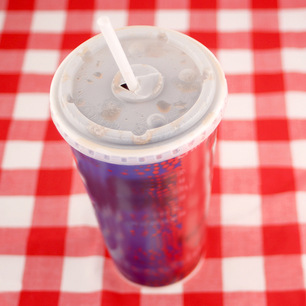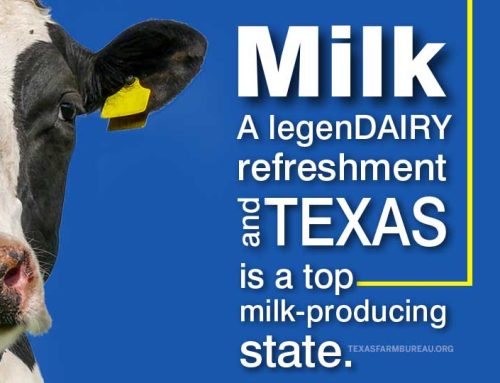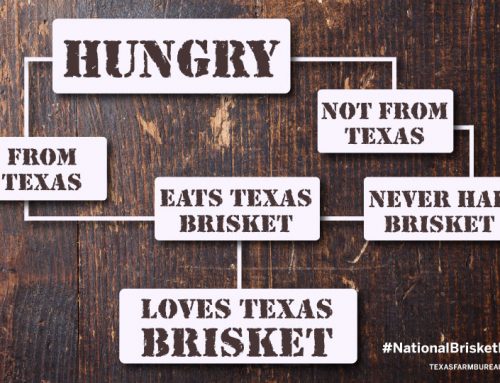By Amanda Hill
The other morning, I saw a Today Show interview with New York City Mayor Michael Bloomberg as he explained his “soda ban” policy. In the spirit of reducing obesity rates for NYC adults (now at more than 50 percent), the mayor is proposing a ban on all “full sugar” drinks larger than 16 ounces. If the law is passed—by the NYC Board of Health, which Mayor Bloomberg appoints—New Yorkers will be banned from buying large sodas in restaurants, movie theaters or even at their sacred Yankees Stadium.
While I agree with Mayor Bloomberg that obesity is a serious problem in America, the rule is fundamentally flawed. Take his reasoning as I remember him explaining on the Today Show:
Matt Lauer: “Do you think this soda ban is really going to reduce the obesity problem?”
Mayor Bloomberg: “We’re not banning anyone’s right to drinking soda. If you want to buy 32 ounces of soda, the restaurant just has to serve it to you in two glasses. This isn’t taking away your freedoms. It’s just reminding you to drink less.”
You’ve got to be kidding me! I heard that response and about burned my finger on my straightening iron. (Does anyone else multi-task in the mornings?) The fact that he admits New Yorkers will circumvent this rule by ordering a second Dr Pepper or go back for a refill just proves that the government cannot force people to make lifestyle changes. “Motivate,” maybe. “Force,” no.
It’s the same as telling someone what religion they must follow. At the end of the day, each individual has the right to choose. Americans are allowed the freedom to make their own choices. Government can’t tell us what we can and cannot eat. Drinking soda on a daily basis is not healthy. We know we are much better off with a glass of water, milk or 100-percent fruit juice. But that must be a personal choice.
To me, Mayor Bloomberg should take a lesson from First Lady Michelle Obama’s “Let’s Move” campaign. Instead of forcing kids (and adults) to exercise, the First Lady has motivated them to get out and get active—and to make real lifestyle changes. Or, maybe Mayor Bloomberg should just increase the advertising buys for this public service announcement by the NYC Board of Health. It certainly motivated me.
How do we fight obesity, Mayor Bloomberg? We encourage real and permanent lifestyle changes like a balanced, moderate diet and regular exercise. But reducing America’s waistline through regulations just makes me give a big gulp.











The government is fighting to control big oil, big pharma, and now it’s “big soda,” as advocates for forced healthy eating are fond of calling it. Actually, the subject of passing laws to help people make healthy choices is quite contradictory.
Laws are requirements that demand adherence, so if something is a law, the opportunity for choice no longer exists.
New York’s Mayor Michael Bloomberg ignited the debate with a proposed ban on sugar-sweetened drinks larger than 16 ounces. It’s unclear whether the law prohibits a customer from buying, say, two 12-ounce drinks, instead of one large drink. Will they call the sugar police on you if you do? Who is responsible for enforcing it? The one who buys the contraband sweetness or the one who sells it?
The law of good intentions certainly applies here. It’s a good thing to address the problem of obesity, but is passing more laws the best way to go about it?
The ultimate irony may be the fact that the problem of obesity is far worse in impoverished areas such as Richmond, Calif., which is described as “one of the neediest communities in the Bay Area.”
In November, Richmond voters will be asked to approve a 1-cent-per-ounce tax on sugar-sweetened drinks. Richmond’s approach is a bit different than is New York’s. In Richmond, it would be more like the cigarette tax. You can smoke all you want, or eat all the sugar you want, just as long as the taxman gets his cut.
There are a number of reasons for obesity among people in poor areas, of course. Poverty usually means less control over one’s life, including eating habits, and less purchasing power so that people often tend to make choices that lead to unhealthy diets.
The irony here is that people who are impoverished would have been provided with federally approved school lunches, breakfasts, and snacks through the National School Lunch Program. The national school lunch program has only been around since 1946 to provide “nutritionally balanced, low-cost or free lunches to children each school day.”
With the government in charge of nutrition, the problems with diabetes and obesity have skyrocketed.
Leave it to the government to solve a problem in one agency by creating another agency and more laws. The best of intentions cannot make it right.
The Healthy, Hunger-Free Kids Act of 2010 sets policy for the National School Lunch Program, the School Breakfast Program, the Special Supplemental Nutrition Program for Women, Infants and Children (WIC), the Summer Food Service Program, and the Child and Adult Care Food Program.
You’d think that all those agencies would be sufficient to influence healthy eating habits without individual states having to add more laws about what people can or cannot eat.
Elaine, thanks for your comment. You make some very good points. Based on the news reports that I’ve read, and Mayor Bloomberg’s own response on the Today Show, it will not be illegal to purchase more than one 16-oz. beverage at one time. Logically, it just doesn’t make sense as to how that will solve the problem. The government cannot regulate our problems away. Ultimately, many societal problems stem from the fact that people have the freedom of free will. They are responsible for making choices for themselves, and whether they’re buying one 32-oz. soda or two 16-oz. sodas, it matters not.
I smell a rat. What better way for businesses to make even more money by selling you two drinks instead of one? Check the prices now – two small drinks cost more than one large and not all restaurants offer free refills on sodas.
@D Horton, I agree. Is this really a fight against obesity? Usually buying two medium sodas costs more than buying one large soda. If the stores make more money, it follows that more taxes are charged on their sales. Hmm…
[…] be armed with information. I also like that consumers are still given a choice—unlike the recent “Big Gulp ban” in New York […]